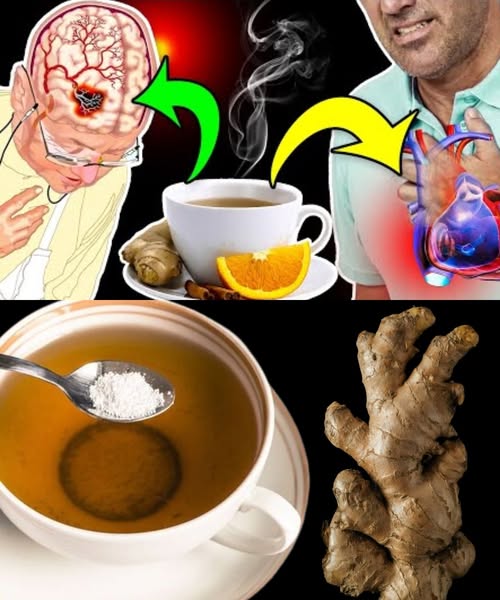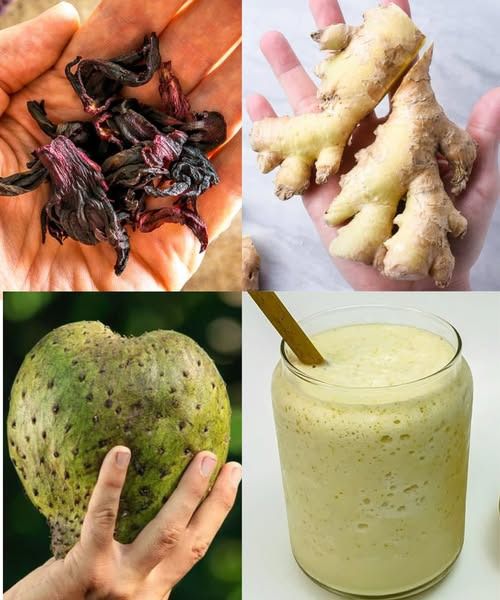Introduction

After the age of 50, maintaining heart health becomes a top priority. Blood clots, while a natural mechanism to stop bleeding, can become life-threatening when they form in the wrong place. Deep vein thrombosis (DVT), strokes, and heart attacks are often linked to abnormal clot formation. While aspirin is a common preventive measure prescribed by doctors, many people are searching for safer, natural, and equally effective alternatives.
Here’s the good news: certain herbal teas have been scientifically linked to improved circulation, reduced platelet aggregation, and natural blood-thinning effects. In other words, they may help prevent dangerous clots—without the side effects of long-term aspirin use.
In this article, we’ll explore the 7 most powerful teas that naturally support blood health after 50. We’ll also answer common questions about clot prevention, provide essential health tips, and explain how these teas fit into a heart-healthy lifestyle.
Why Look Beyond Aspirin?
Aspirin has been a go-to for decades because of its ability to reduce platelet stickiness. However, long-term use is not without risks. According to the U.S. Preventive Services Task Force, routine aspirin use in adults over 60 is no longer recommended for heart disease prevention due to risks of bleeding in the stomach and brain.
This is where nature steps in. Herbal teas, consumed for centuries across cultures, are now being backed by modern research as powerful tools for cardiovascular health. They offer antioxidants, anti-inflammatory compounds, and natural blood-thinning properties—without the harsh side effects.
7 Teas That Prevent Clots Naturally After 50
1. Green Tea – The Antioxidant Powerhouse
Green tea is one of the most studied beverages in the world. Packed with catechins, especially epigallocatechin gallate (EGCG), it improves endothelial function, lowers cholesterol, and reduces platelet aggregation.
- Key Benefit: Supports circulation and reduces oxidative stress, which plays a role in clot formation.
- Stat Fact: A study in the Journal of the American College of Nutrition found that regular green tea drinkers had a 20% lower risk of cardiovascular events.
2. Ginger Tea – Nature’s Anti-Inflammatory Root
Ginger contains compounds like gingerol and shogaol, which act as natural anti-inflammatories and mild blood thinners.
- Key Benefit: Prevents excessive platelet clumping, a major factor in clot formation.
- Practical Tip: A warm cup of ginger tea daily after meals can improve digestion and circulation simultaneously.
3. Turmeric Tea – The Golden Healer
Curcumin, the active compound in turmeric, has anticoagulant properties. Turmeric tea is not only soothing but also a powerful natural preventive for clot formation.
- Key Benefit: Supports heart health by reducing inflammation and enhancing blood flow.
- Quick Recipe: Brew turmeric with black pepper (to boost absorption) for maximum benefits.
4. Hibiscus Tea – The Blood Pressure Regulator
Hibiscus tea is known for its tart, cranberry-like flavor and vibrant red color. Rich in anthocyanins and antioxidants, it has been shown to reduce blood pressure and improve vascular health.
- Key Benefit: Prevents hypertension-related clot risks by keeping arteries flexible.
- Stat Fact: Studies show hibiscus tea can reduce systolic blood pressure by up to 7 mmHg after regular consumption.
5. Chamomile Tea – The Relaxing Clot-Preventer
Chamomile isn’t just for sleep—it contains natural coumarins, compounds with mild blood-thinning effects.
- Key Benefit: Reduces stress-related clotting risks while gently supporting circulation.
- Best Time: Evening, as it promotes relaxation and improves sleep quality.
6. Black Tea – The Circulation Booster
Like green tea, black tea comes from the Camellia sinensis plant but is more oxidized. Its flavonoids improve blood vessel function and may prevent clot buildup.
- Key Benefit: Enhances circulation and supports cholesterol balance.
- Pro Insight: One to two cups daily are linked with a reduced risk of heart disease by nearly 11%.
7. Cinnamon Tea – The Metabolism & Blood Flow Enhancer
Cinnamon contains cinnamaldehyde, which improves blood circulation and acts as a natural anticoagulant.
- Key Benefit: Supports both blood sugar regulation and healthy blood flow.
- Quick Tip: Brewed cinnamon sticks provide the strongest clot-preventive effects.
Frequently Asked Questions
❓ Can teas really replace aspirin?
Teas should not be seen as direct substitutes for prescribed medication. However, they can complement medical treatment and support cardiovascular health naturally. Always consult your doctor before making changes to prescribed regimens.
❓ How often should I drink these teas?
For most people, 1–2 cups daily of these teas is safe and beneficial. Variety is key—alternate between teas to gain the full spectrum of nutrients.
❓ Are there risks with these teas?
Yes, especially if you’re already on blood thinners like warfarin. Overconsumption may increase bleeding risks. Moderation and professional guidance are essential.
❓ Which tea is best for overall heart health?
Green tea and hibiscus tea are the most widely studied for heart health, but incorporating several options ensures broader benefits.
How to Incorporate These Teas Into Your Lifestyle
- Morning: Start your day with green tea or black tea for energy and circulation support.
- Afternoon: Choose ginger or turmeric tea for anti-inflammatory benefits.
- Evening: Opt for chamomile or hibiscus to relax and regulate blood pressure.
- Weekly Rotation: Alternate cinnamon tea throughout the week for blood sugar and circulation support.
Additional Lifestyle Tips for Preventing Clots After 50
Drinking these teas is just one part of the solution. Pair them with these strategies for optimal results:
- Stay Active: Even a 30-minute daily walk reduces clot risks significantly.
- Stay Hydrated: Dehydration thickens the blood, increasing clot risks.
- Eat Omega-3 Rich Foods: Salmon, flaxseeds, and walnuts naturally support blood thinning.
- Limit Processed Foods: Reduce sugar, refined carbs, and unhealthy fats.
- Maintain Healthy Weight: Obesity is one of the leading risk factors for clot formation.
Conclusion
After 50, the stakes are higher when it comes to cardiovascular health. While aspirin has long been the standard recommendation, the risks associated with its long-term use make natural alternatives more appealing.
Green tea, ginger, turmeric, hibiscus, chamomile, black tea, and cinnamon—all offer powerful, natural clot-preventive properties. By incorporating these teas into your daily routine, alongside a balanced diet and active lifestyle, you can protect your heart, improve circulation, and age with vitality.
The next time you reach for a cup, remember—you’re not just drinking tea; you’re investing in your heart’s future.


